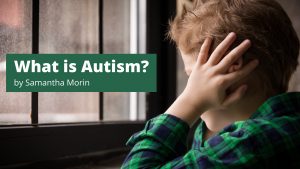It comes without saying that the global outbreak of the Coronavirus (Covid-19) has quickly changed just about every aspect of our daily lives. Some of our daily routines are basically out the window as we struggle to grasp the sudden changes we have been presented with during a pandemic of enormous proportions. Adjusting to any type of change is always a dreadful struggle to an adult. Adjusting to a world that can’t seem to find the perfect way to adjust itself during this difficult time can be extremely frustrating to a parent but can be especially detrimental to a child with autism.
There are, however, ways in which we can help our children understand what is going on and most importantly, what to expect from day to day as we ourselves cope with the unknown changes that lay ahead.
Explaining To Your Child What The Coronavirus Is
Explaining to your child what is going on might be somewhat difficult at first but it will certainly help them adjust with the “every day” and perhaps even thrive during this time. The most important thing to keep in mind when explaining what is going on to your child is to be clear and honest but also be very simple in presenting how this virus is affecting their lives. We can say things like “The Coronavirus is a germ that is making a lot of people very ill but there are some things that we can do to stay healthy and not get ill”. It is also very important to explain why some daily activities have to be done from home and also why other kids are attending school from home. They will clearly notice these changes so explaining them will be helpful.
There are, of course, new important rules that need to be followed by everyone and perhaps these may also be difficult to implement at first but as parents, we still have to implement them and follow through at all times. Their safety depends on these rules. We can begin with some of the most essential rules; washing our hands, trying not to touch our nose, mouth, or eyes until we have washed our hands thoroughly for at least 15-20 seconds. We can also tell them that we have to stay at least 6 feet away from people that do not live in our house with us, even if they are our friends or our favorite neighbors.
In a time where confusion seems to rule the airwaves, it is very important to be direct and clear with our child but also be careful not to offer more info than he/she asks for. We need to give them space and time for questions. If your child is getting through the day without the mentioning of the Coronavirus then it is perhaps in our best interest to not bring up the topic.
Helping My Child Adjust During The Pandemic
Children with Autism are very drawn to routines so it is very important that we keep the routines that do not directly interfere with Coronavirus rules if possible. Routine activities like TV time, bedtime, lunch, and dinner times should continue as they are not activities that would expose your child to the virus. In addition, we can slowly build new routines to adjust to some of the new changes we are facing such as homeschooling. Some parents are currently working from home, in some cases, for the first time in their child’s life, therefore, explaining why they are home will help them adjust to this new routine.
Creating to-do lists and other visual schedules is another way to help your child know what to expect for the day and will also help them take control once they are given a couple of choices. We can let them choose what to have for breakfast or what color clothing to wear for the day, etc. Routines have proven to be very helpful in lowering the anxiety that emerges when things around them change.

Helping My Child Stay Calm
One of the most important things we can do to keep our autistic children calm is to limit the time that they spend on social media, as well as the time they spend watching news channels or reports of scary things around the world. As parents and adults, most of us take with a grain of salt the doomsday prophecies of some TV personalities but the same cannot be said of our children. They worry and become very anxious and when kids with autism feel worried and scared they sometimes end up having more tantrums and other repetitive and challenging behaviors. If they seem more upset and worried than usual it is recommended that you contact your child’s health care provider as these may be signs of anxiety and/or depression.
If you have noticed that their fear stems from something they witnessed, whether on TV, online, or elsewhere, talk to them to help them ease their fears. Calming activities such as listening to music, or watching their favorite movie can really help them. Deep breathing exercises are also recommended as well as doing crafts, writing, and sometimes simply talking about whatever their favorite subject is can also help them stay calm.
It is always strongly advised to stay in contact with your child’s learning specialist, teacher, and/or child health care provider as they can offer a lot more ideas on how to manage your child’s life during this extremely difficult time. And as always, do not hesitate to contact them if you notice a moderate change in your child’s eating or sleeping habits. Because of Covid-19 a lot of child health-care providers are doing video conference calls so that parents do not have to leave their homes in order to talk to a professional about their child’s well-being.



